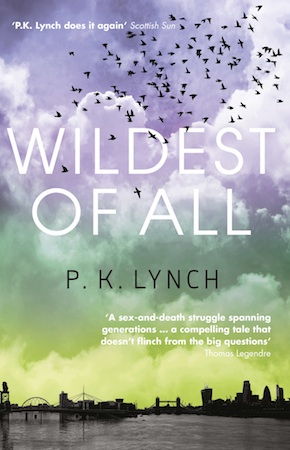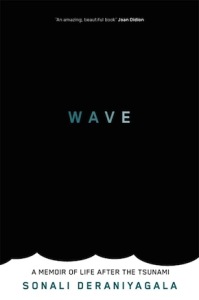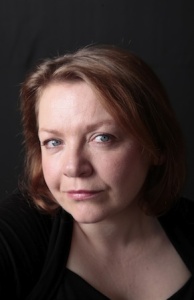Enduring grief
by P.K. Lynch
“P.K. Lynch can tell a story deep as a wound.” Jeanette Winterson
My parents died within three years of each other when I was in my early twenties. In an effort to make sense of that blizzard of time, I told myself there was nothing I didn’t know about grief. We are encouraged to seek the positive in everything, and my silver lining would be that I was an expert, wise beyond my years. This knowledge would serve me well in life.
Thus armed, I strode towards my future oblivious to the shape-shifting beast that lay dormant inside me. We were to meet many times over the coming years, this beast and I, sometimes at the most innocuous of moments. Our relationship is ongoing. One thing is clear, in over twenty years the only certain thing I can say about grief is you have to learn to live with it. There is no getting over it, or banishing it; there is only enduring. For centuries, artists, musicians and writers have explored death and grief in their work, drawn moth-like to a subject the reality of which thrusts our lives far into formidable lands.
The narrator in my book Wildest of All compares the shock of a loved one’s sudden death to a bomb going off, and all life after nothing more than a series of aftershocks for those in the vicinity of the explosion. Researching this piece I discovered – horror of horrors – I’m not the first writer to fall upon this allegory.
The Goldfinch by Donna Tartt
Tartt’s epic novel is a fine example of how bereavement can change a person’s trajectory. In the moments leading up to the explosion that kills thirteen-year-old Theo’s mother, she tells him the painting she is admiring is ‘the missing link’ between Rembrandt and Vermeer. It takes on a new, poignant significance for Theo as he leaves the ruptured building with Fabritius’s famous painting in his bag. It stays with him through his life as solidly and surely as his grief, and leads him ultimately to the brink of total annihilation.
It’s the quiet domesticity of The Beginner’s Goodbye that makes it such a touching read… the dawning realisation that life still holds promise.”
The Beginner’s Goodbye by Anne Tyler
The ‘bomb’ in this story arrives in the form of an oak tree that crashes onto Aaron and Dorothy’s house. It falls on a day ‘without a breath of wind, without so much as a breeze’, and swiftly claims Dorothy’s life. We follow the ageing Aaron as he struggles to reassemble a kind of order into his life. It’s the quiet domesticity of the novel that makes this such a touching read; the process of repairing the house, finding the relevant papers, the cosy comfort of enforced sibling cohabitation, and Aaron’s dawning realisation that life still holds promise.
 Wave: A Memoir of Life After the Tsunami by Sonali Deraniyagala
Wave: A Memoir of Life After the Tsunami by Sonali Deraniyagala
Sonali Deraniyagala uses the word ‘blast’ three times in the opening pages of her searing memoir. Having lost her parents, husband and two children when the now infamous Boxing Day tsunami surged inland along the coast of Sri Lanka, her writing is direct and unforgiving; she is angry with herself, the wave, the survivors, and even those who rally to her side in the weeks and months afterwards. A difficult read but a vital one.
A Song for Issey Bradley by Carys Bray
Bitterness and blame fall into the Bradley family even before tragedy has taken full hold. The religion that is supposed to anchor them proves to be no match against the suffering caused by the death of their youngest member. One by one they crumble into a morass of despair, each experiencing their sorrow in unique isolation. This is one of the most heartbreaking reads about human frailty you will find.
The Child in Time by Ian McEwan
Here we follow Stephen Lewis’s struggle to survive in the years after his daughter goes missing from a supermarket. He replays the moments leading up to the disappearance in an agonising quest to put a face to the presence he thinks he was dimly aware of while he paid for his groceries. McEwan keeps the reader brilliantly in time with his protagonist, tricking us just as grief plays tricks on the bereaved Stephen, driving him to breakdown. The end scene is as startling as it is memorable.
Elektra by Sophocles
No one scales the epic range of human experience better than the ancient Greeks. After Agamemnon offers up his daughter Iphigenia as a sacrifice to the gods in a bid to win their favour in the Trojan War, his wife Clytemnestra achieves revenge by having him murdered, much to the dismay of their surviving children, Orestes and Elektra. Tit-for-tat revenge is the only answer to their howling sorrow, and thus the cycle of despair continues.
A Game of Thrones by George R.R. Martin
At the time of writing, it seems the whole world is tuned into the television adaptation of the Game of Thrones series. Murder and grief are ever-present in this world but nowhere more so than in the character of Cersei. Not the most sympathetic of individuals to begin with, her warped motherly instincts give her a softness we can all recognise. However, her inner darkness hardens and grows when her three children are lost through murder and suicide. Grief leads her – and the entire Kingdom – even further down a road of brutality and deadly havoc.
Up by Pete Docter and Bob Peterson/Pixar
A lighter approach is taken in this children’s movie, which opens with Carl and Ellie meeting as youngsters and forging a bond to last a lifetime. In ten short minutes, the makers reel us in so that when Ellie dies after what has been a long and happy marriage, we’re almost as emotionally invested as the widower Carl. Grief turns him into a stereotypically grumpy old man, stubborn and anti-social. Regretful he and Ellie failed to achieve their much longed-for trip to South America, he ties hundreds of balloons to his house and thus begins his journey back to life.
Juliet Stevenson’s Nina conveys the urge to pick forensically over the bones of her grief, even at the risk of her own recovery.”
Truly, Madly, Deeply by Anthony Minghella
Juliet Stevenson plays Nina, a woman whose boyfriend (Alan Rickman) has recently passed away, with a harrowing, naked honesty that compels us to stare despite our discomfort. It is a raw, burning portrayal of grief, full of rage and joy. In one scene she tells her psychiatrist, “I miss him I miss him I miss him I shouldn’t be doing this” – the words practically vomiting out of her, and at once conveys the urge to pick forensically over the bones of her grief, even at the risk of her own recovery. Incidentally, Rickman’s death in January 2016, days after David Bowie, perpetuated a year of collective internet mourning as our favourite celebrities began to pass away with alarming regularity.
‘Let’s kick the shit out of Option B’ by Sheryl Sandberg
The internet has helped open the conversation on grief. The heartache of others can crash into our lives via our virtual timeline at any point. Sheryl Sandberg’s Facebook post was one such instance. Her words on the death of her husband have so far had almost a million reactions from the Facebook community and half a million shares. We are reminded that grief only arrives when we lose someone we have loved, or who has loved us. Can we say that grief is a manifestation of love? It may cripple us in the first instance but later, when the blizzard abates, we can use it to remind ourselves of the best parts of being human. Grief signifies not only abject sorrow but also untold richness within each of us. It is testament to our humanity. So, while we will continue to look to the arts to help us understand life’s pain, perhaps increasingly we’ll look to each other too.
 P.K. Lynch trained as an actor and her first professional job was playing Lizzie in the film of Irvine Welsh’s novel Trainspotting. After having a baby, she completed her first stage play, Promise. Her second play, King of the Gypsies, played at the Edinburgh fringe and then toured. She then enrolled on the MLitt Creative Writing programme at Glasgow University where her first novel Armadillos was awarded the Sceptre Prize for Fiction. Armadillos and Wildest of All are published by Legend Press.
P.K. Lynch trained as an actor and her first professional job was playing Lizzie in the film of Irvine Welsh’s novel Trainspotting. After having a baby, she completed her first stage play, Promise. Her second play, King of the Gypsies, played at the Edinburgh fringe and then toured. She then enrolled on the MLitt Creative Writing programme at Glasgow University where her first novel Armadillos was awarded the Sceptre Prize for Fiction. Armadillos and Wildest of All are published by Legend Press.
Read more
lynchpinpauline.wordpress.com
@lynchpinpauline


